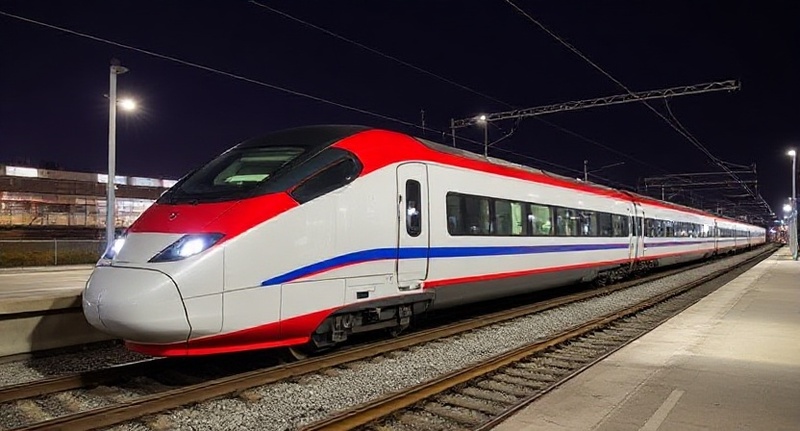Home » DENMARK TRAVEL NEWS » EuroCity Trains Win Authorization in Denmark and Germany Boosting Cross Border Travel and Sustainability: Know More
Published on
September 13, 2025
The Spanish train manufacturer Talgo has reached a major milestone as its Talgo 230 trains have received full certification to operate on both the Danish and German rail networks. The approvals, granted by Denmark’s Trafikstyrelsen, Germany’s Federal Railway Authority (EBA), and the European Railway Agency (ERA), pave the way for the launch of these modern trains under the EuroCity (EC) brand. The move will not only enhance domestic travel within Denmark but also revitalize the cross-border rail connection between Copenhagen and Hamburg.
The Talgo 230 platform has already proven its versatility and safety standards, having recently secured authorization for ICE L trains operating in Germany. Leveraging this experience, the EuroCity trains have undergone additional tests specific to Denmark, including rigorous electromagnetic compatibility assessments, ensuring seamless operation across national borders. The approval process involved extensive collaboration with both Danish and German infrastructure managers—Banedanmark and DB InfraGO—and included close cooperation with TÜV SÜD Rail, a leading European certification authority.
The EuroCity trains are designed for high-capacity intercity travel, capable of reaching 200 km/h in commercial service with a maximum design speed of 230 km/h. Each train can accommodate up to 492 passengers, featuring flexible configurations with 9 to 15 cars that include first and second class seating, a PRM coach for passengers with reduced mobility, and provisions for bicycles and e-bike charging. The two end cars on each train serve as interfaces with third-party locomotives, and in the near future, one will be replaced by a Talgo cab car to allow a push-pull configuration, optimizing turnaround times at terminal stations.
This latest certification marks Talgo’s continued expansion across Europe, supporting routes from Scandinavia to the Danube and from the Baltic Sea to the Alps. Efforts are already underway to secure additional approvals in Austria, the Netherlands, and Switzerland, which will further extend the operational reach of the Talgo 230 platform.
The EuroCity trains for DSB form part of a fleet of 16 trains delivered in phases through three successive contracts. The initial framework agreement, signed in 2020, was valued at €500 million and included eight trains. A second order in 2021 expanded the fleet capacity by 10%, and a third order in 2023 added eight more trains at a cost of €184 million. These orders reflect Denmark’s commitment to modernizing its rail network with energy-efficient and high-performance rolling stock.
Talgo 230 trains are engineered for countries with dense urban networks and frequent stops, combining lightweight construction with enhanced acceleration and braking capabilities. This makes them particularly suited for high-demand corridors such as Copenhagen-Hamburg, where speed, reliability, and comfort are essential.
In Germany, Talgo has also made significant inroads. Deutsche Bahn signed a framework contract in 2019 for up to 100 ICE L trains, with two confirmed orders totaling 79 units. Additionally, Flix, a major private transport operator, has placed an order for up to 65 trains, aiming to become Europe’s largest private passenger train operator. These contracts underscore Talgo’s reputation as a leading intercity train manufacturer capable of meeting rigorous technical and quality standards.
Talgo EuroCity trains offer a variety of coach types to enhance passenger experience: flexible seating areas for families and cyclists, PRM coaches with accessible facilities, and first- and second-class seating designed for comfort over long distances. The recoverability of the train structure is rated at 95%, reflecting robust safety and engineering standards.
For Denmark, the introduction of these trains is a key component of DSB’s strategy to expand and modernize its fleet. Founded in 1885, DSB operates across all five Danish regions over a 2,600 km network managed by Banedanmark. With one of the highest per-capita rail usage rates in the EU, Denmark is positioning rail transport at the forefront of its climate strategy, aiming for a 70% reduction in emissions by 2030 and full carbon neutrality by 2050. The Talgo 230 trains will play a pivotal role in these ambitions, offering a greener and faster alternative to road and air travel while supporting international connectivity.
